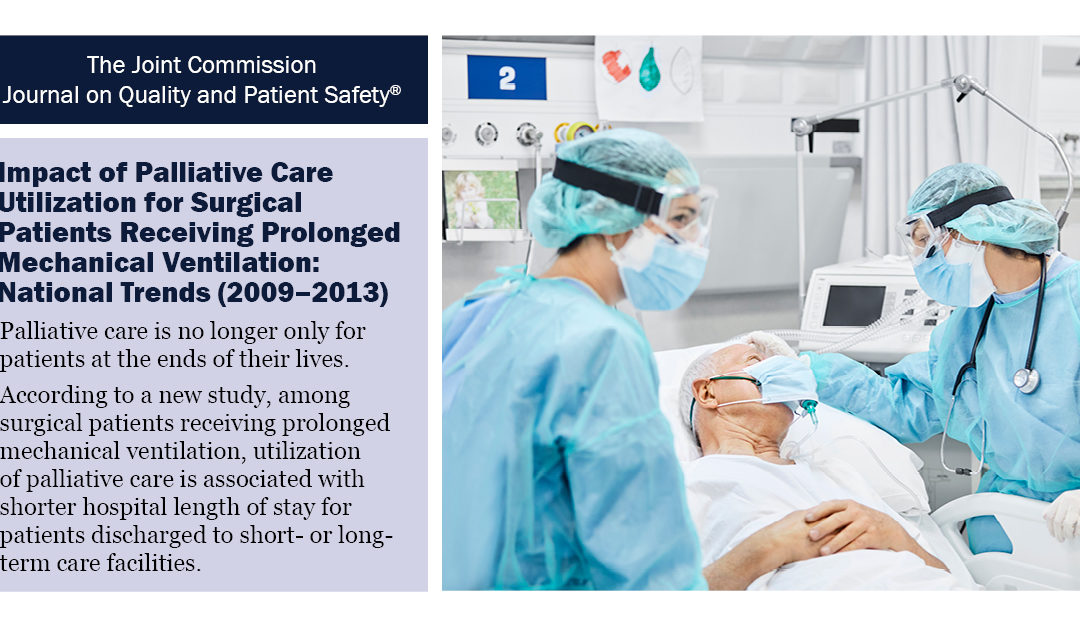
Study in September 2020 issue of The Joint Commission Journal on Quality and Patient Safety
Palliative care provides specialized medical care for people living with a serious illness. There is growing recognition of the importance of expanding palliative care beyond only patients at the end of life to surgical patients with serious illness.[1]
A new study in the September issue of The Joint Commission Journal on Quality and Patient Safety, “Impact of Palliative Care Utilization for Surgical Patients Receiving Prolonged Mechanical Ventilation: National Trends (2009-2013),” analyzed data from the National Inpatient Sample (NIS) to determine if palliative care utilization for surgical patients is associated with hospital length of stay (LOS).
The researchers from the University of Arkansas for Medical Sciences, Little Rock, reviewed NIS data between 2009 and 2013 to identify adults who had a surgical procedure and required prolonged mechanical ventilation (MV) for 96 consecutive hours or longer, as well as patients who also had a palliative care encounter.
Findings showed the utilization of palliative care among surgical patients with prolonged MV increased yearly from 5.7% in 2009 to 11% in 2013. For prolonged MV surgical patients who died, palliative care increased from 15.8% in 2009 to 33.2% in 2013. The median hospital LOS for patients with and without palliative care was 16 and 18 days, respectively.
In addition, patients discharged to either short- or long-term care facilities had a shorter LOS if palliative care was provided (20 vs. 24 days). Factors associated with palliative care utilization included older age, malignancy and teaching hospitals. Non-Caucasian race was associated with less palliative care utilization.
“Palliative care may have an important role, apart from end-of-life discussions, for those patients discharged to either short- or long-term facilities,” conclude the study authors. “Future studies are needed to prospectively determine the appropriate utilization of palliative care in the surgical population and the impact of palliative care on the clinical outcomes.”
“Palliative care and surgery have a long and intertwined tradition of improving quality of life for patients. Supporting and integrating the two specialties in the care of critically ill patients provides the combined benefits of each field’s experience, expertise and commitment to excellent care,” notes an accompanying editorial.
For more information, visit The Joint Commission Journal on Quality and Patient Safety website.









